There was another paper in that old file that kept pulling at me to take it out and turn it over, as though
some new writing might appear over words I had come to know by heart. It was a small piece
cut from a newspaper. An obituary for my father's mother, Catharine.
There were several pieces of
information that dangled as threads crying out to be pulled. One was that her pallbearers were the
governor of Colorado and three generals -- a level of visibility that increased the possibility that
her passage through the world would leave behind her traces to be found.

Other threads were the names and places of two of her marriages, to Bell in Canon City
and to Van Deusen in Denver. The obituary also noted the name of the great-grandfather whose
wife, I later learned, raised Catharine --
Henry B. Gibson.


That short notice started me on a quest that has led me to Canandaigua, New York and through labyrinth
pathways across the Internet.
At the time I first put up this website, I had not yet
found my father's poetry, but I had been able to discover much that helped
me make sense of who he was and what he passed down to me.
Outcast men of the world are we,
Sunk in the depths of iniquity
Detested by all and loved by none.
A blot on the face of the kindly sun.
Men of training and breeding and birth
Who knew full well what the game was worth
Who played their hands -- and lost --
 -- and then -- and then
Lost themselves from the world of men.
We hid ourselves in the Island world
Where the flashing coils of the "Snake" are curled
We sought the depths to hide our shame.
The "thing" we had made of an honored name.
We swam the Bay in the early dawn
But the Shark came not, and we lived on.
We sought the end in the bolo's steel
But hearts wounds live, while flesh wounds heal.
We went unarmed to the Moro's "jil"
But they called us "mad" and they would not kill.
And the Padre came with his tale of Grace
But we knew better, and laughed in his face.
We twined our hearts in a woman's hair
Then tried to forget in the din and glare
Of a "tienda down on the opal bay
Where many men come and some men stay.
We lost ourselves in the Army then,
Our identity merely "Enlisted Men"
But in the dusk, when the shadows start to crawl
In their weird, wild dance on the barracks wall
A ghastly pageant that comes to stir
Our memory again to what we were
And we bow our heads and stifle a cry
For we don't know how and we'll never know why.
 El Tigre. El Tigre.
 Nov 7, 1928 Nov 7, 1928
|
Father's name at birth was Bradley Evans Bell. When his mother married Robert M. Van Deusen (born abt. 1868 in NY), Bradley used his stepfather's name informally
until, as an adult, he legally changed his name to Bradley TenEyck Van Deusen.
He was born in 1905 and, at
the age of 16, ran away to join the Army. Both of those acts make so much more sense when looked at in
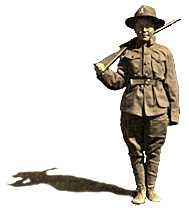 the context of his background.
the context of his background.
Catharine's father was
Brigadier-General Henry Lawrence Burnett, a
Civil War army lawyer who served as assistant
special judge advocate for the Lincoln assassination trial. Her father's father, Brig.Gen. Henry Livingston Lansing,
commanded a National Guard unit in Buffalo, and her granduncle,
Colonel Henry Seymour Lansing, later another Brigadier-General,
commanded the 17th New York Infantry. And ninety years before that, there were
Lansings in the Revolutionary War as well. Bradley's family was a military family and he was pointed to an Army career from his youngest days.
Father was not the first of his line to leave home at so early an age. Both his grandfather Burnett
and his 2nd great grandfather Gibson had run away from home to follow their own dreams rather
than the dreams of their parents. General Burnett, the son of a farmer, ran away to gain
an education in the law. Henry Gibson ran away from his father, a lawyer, to learn business in the store of
Judge Cooper, the father of James Fenimore Cooper, Henry Gibson's lifelong friend.


Creating with words was a family tradition.
My many times married grandmother Catharine and my grandfather, her middle husband, Jack Bell,
published the Canon City Cannon, a paper that "went off once a week." Grandfather also published mining articles, as he had won and
lost fortunes from Alaska to Central America. Grandmother was known to write children's stories,
but I've been unable to find them under any of her names.
- Catharine Gibson Burnett
- Catharine Burnett Mercur
- Catharine Burnett Bell
- Catharine Burnett Van Deusen
Going back further, writing and reading seem to have been lifelong family loves. Catharine's maternal
grandfather was widely praised for his
Besides Catharine and Jack, Catharine's grandfather,
Henry Livingston Lansing, was renowned as a literary correspondent and one of the most famous documents,
the Declaration of Independence, was created by a committee including Catharine's great...n
granduncle, though
Robert Livingston was recalled by New York before he could sign the document.



A Search for his Books
I know that father was part of the forces sent to the Philippines
and that, while there, he wrote poetry in some dialect of the Philippine language. I know that there was at least one book
of poetry written before 1934. Mother was forced to leave U of Chicago because of the Depression and
finished her bachelor's degree at Texas State Women's College. It was there, as a big fish in a small pond, that
she was able to go to dinner with Frank Lloyd Wright and Robert Frost while interviewing them for the
college paper. I know that she gave a book of father's poems to, at least, Robert Frost. But whether the
volume ended up in the hotel trash or in his library, I cannot say.
I know that father and mother lived in Greenwich Village for most of the ten years of their marriage. Father
was part of the literary set of the time. I know he valued his relationship with Red Grange, a football
player. I know that the wall behind mother and father's sofa was marked by the hair cream of
John Rose Gildea, a journalist and poet
from Arizona. And I must assume that these, and others, were recipients of father's books.
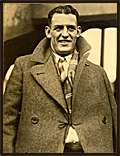
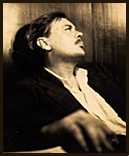
But what happened to those books has been lost in the fog of time.
He must have left copies of his books with his family -- his mother, his half-sister, his niece. But along
with those medals and long-ago books, mother also sent back his family and so I know nothing of
anyone once close to him.
Suggestions of possible paths for me to follow are gratefully accepted.





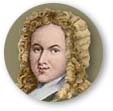
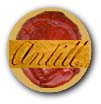
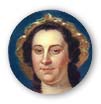
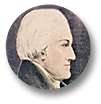

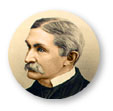
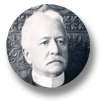
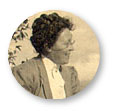
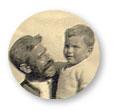
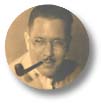







 Copyright © 1997, Mary S. Van Deusen
Copyright © 1997, Mary S. Van Deusen